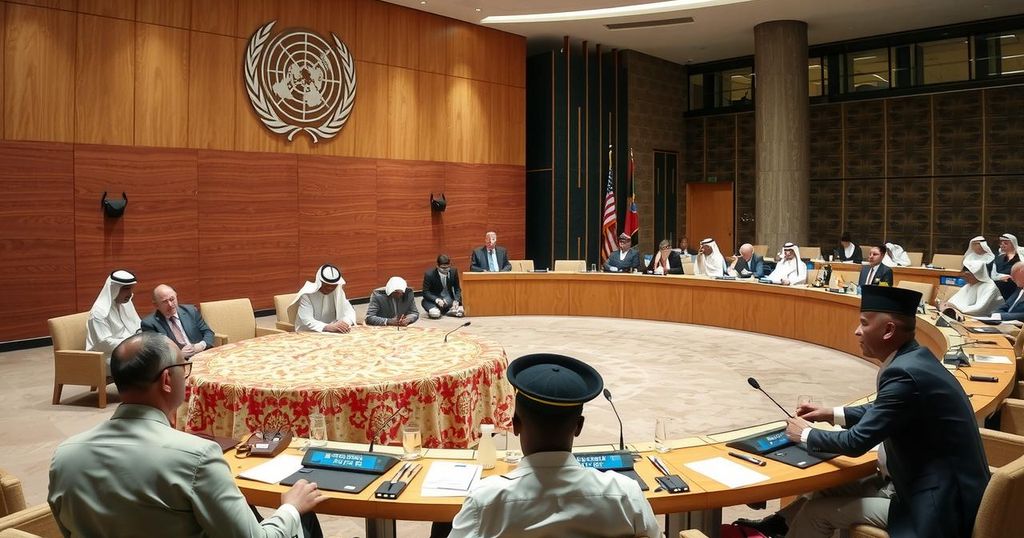The UN talks in Riyadh concluded without an agreement on drought response, with significant disparities between the Global North and South in climate commitments. Developing nations sought binding protocols, while developed countries favored a more flexible framework. A future global drought regime is slated for completion at COP17 in 2026, amidst concerns over the escalating impacts of droughts fueled by environmental degradation.
The recent talks hosted in Riyadh, Saudi Arabia, as part of the United Nations Convention to Combat Desertification (UNCCD), concluded without reaching an agreement on a global response to drought. This 12-day meeting, known as COP16, illustrated the ongoing challenges faced in securing climate action, especially following previous unsuccessful discussions related to biodiversity and climate finance. The desire for a legally binding protocol to address droughts was evident, particularly among African nations, yet developed countries appeared hesitant to adopt such commitments.
UNCCD Executive Secretary Ibrahim Thiaw highlighted that further time is needed for parties to establish a definitive plan of action. Although the attendees, comprising 196 countries and the European Union, made progress in formulating a future global drought regime targeted for completion by COP17 in Mongolia in 2026, their efforts fell short at COP16. Recent UN reports notably indicated that droughts, exacerbated by environmental degradation, cost the global economy over $300 billion annually and are projected to impact over three-quarters of the global population by 2050.
The disparity between the Global South and North regarding climate commitments was stark, with African representatives seeking stronger, binding protocols while developed nations preferred a non-binding framework. Indigenous groups participated actively in the discussions, advocating for more stringent measures to combat drought. Despite its efforts, Saudi Arabia, criticized for its fossil fuel policies in past negotiations, pledged to spearhead initiatives combating desertification and supporting ecosystem preservation. The UNCCD, prior to the Riyadh meetings, emphasized the necessity of restoring 1.5 billion hectares of land and identified a requirement of $2.6 trillion in investments to address global water scarcity and desertification adequately.
The UNCCD is an international treaty established to combat desertification and mitigate the effects of drought. The annual meeting, known as the Conference of the Parties (COP), brings nations together to discuss strategies and commitments addressing these environmental challenges. The current state of global drought is dire, with significant economic losses attributable to weather-related issues compounded by human activities that damage the environment.
In summary, the COP16 talks held in Saudi Arabia provided a platform for discussion but ultimately fell short of establishing a binding agreement to tackle global droughts. The divide between developed and developing nations highlighted differing priorities and a lack of consensus on critical protocols to address the issue robustly. As the global population faces increasing threats from climate change, the need for unified action has never been more vital. Future meetings, particularly COP17 in 2026, will be pivotal in advancing these discussions.
Original Source: www.aljazeera.com







